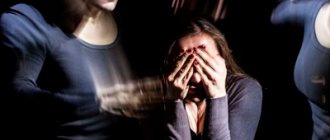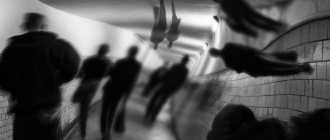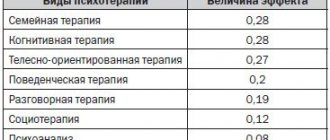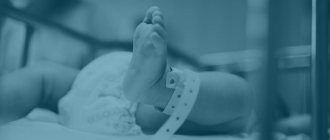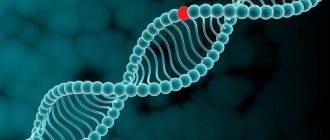Mental health is a very sensitive topic. Clinical manifestations of mental disorders depend on the age of the child and the influence of certain factors. Often, due to fear for future changes in their own life, parents do not want to notice some problems with the psyche of their child.
Many people are afraid to catch the sidelong glances of their neighbors, feel the pity of their friends, or change their usual life order. But the child has the right to qualified, timely assistance from a doctor, which will help alleviate his condition, and in the early stages of certain diseases, cure a mental disorder of one spectrum or another.
One of the complex mental illnesses is childhood psychosis. This disease is understood as an acute condition of a child or a teenager, which manifests itself in his incorrect perception of reality, his inability to distinguish the real from the imaginary, and his inability to really understand what is happening.
Features of childhood psychoses
Mental disorders and psychoses in children are not diagnosed as often as in adult men and women.
Mental disorders come in different types and forms, but no matter how the disorder manifests itself, no matter what symptoms the disease has, psychosis significantly complicates the life of the child and his parents, prevents him from thinking correctly, controlling actions, and building adequate parallels in relation to established social norms. Childhood psychotic disorders are characterized by:
- Delayed development of skills and intelligence. This feature appears in most cases. But there are diseases, for example, autism, during which the child has bright and advanced abilities in some area of activity. Experts say that in the early stages, mental disorders in children are difficult to distinguish from simple developmental delays, and therefore it is impossible to recognize a mental disorder.
- Problems with social adjustment.
- Violation of interpersonal relationships.
- A sublime and special attitude towards inanimate objects.
- Supporting monotony, not accepting changes in life.
Childhood psychosis has different forms and manifestations, which is why it is difficult to diagnose and treat.
Diagnosis of psychosis
Psychotic illnesses are such that a long period of time can pass between their onset and the discovery of clearly expressed symptoms. However, in later stages, psychosis is much more difficult to treat, so it simply needs to be diagnosed at the very beginning, when the disease has not yet begun to develop. To do this, you should pay attention to symptoms that are uncharacteristic of the disease: frequent headaches, increased irritability, unstable mood, impaired cognitive functions of the brain. If a person exhibits the previously described symptoms, then the best decision would be to consult a psychiatrist. Only a specialist will be able to identify the disease and exclude the likelihood of developing psychosis and the disorders that accompany it.
Methods for diagnosing psychosis include:
- genetic analysis;
- assessment of family history;
- filling out specialized questionnaires and scales that are designed to identify deviations from normal behavior.
Researching your family history is important because mental illness can sometimes run in families.
It is also possible to use some instrumental diagnostic methods - MRI and CT. With their help, it will be possible to exclude the presence of other diseases (for example, tumors) that are accompanied by similar symptoms.
Why are children susceptible to mental disorders?
Multiple causes contribute to the development of mental disorders in children. Psychiatrists identify whole groups of factors:
- genetic;
- biological;
- sociopsychological;
- psychological.
The most important provoking factor is a genetic predisposition to mental disorders. Other reasons include:
- problems with intelligence (mental retardation and others like it);
- organic brain damage;
- incompatibility of the temperament of the baby and the parent;
- family discord;
- conflicts between parents;
- events that left psychological trauma;
- medications that can cause a psychotic state;
- high fever, which may cause hallucinations or delusions;
- neuroinfections.
To date, all possible causes have not been fully studied, but studies have confirmed that children with schizophrenia almost always have signs of organic brain disorders, and patients with autism are often diagnosed with cerebral insufficiency, which is explained by hereditary causes or injuries during childbirth .
Psychosis in young children can occur due to parental divorce.
At-risk groups
Thus, children are at risk:
- one of whose parents had or has mental disorders;
- who are brought up in a family where conflicts constantly arise between parents;
- have had neuroinfections;
- those who have suffered psychological trauma;
- whose blood relatives have mental illnesses, and the closer the degree of relationship, the greater the risk of developing the disease.
Types of psychoses and their significance in modern diagnostics
In modern psychiatry, psychosis is considered as a pathology that is accompanied by a mental disorder and mental disorder. The patient experiences deformation of the real environment, thinking is distorted, and mental activity is disrupted. If we compare diseases such as psychosis and neurosis, they are radically different from each other.
With psychosis, profound changes occur in a person’s mental activity and personality; this is a severe form of damage to the nervous system when compared with neurosis, which is considered a milder degree of the disease. Both a psychologist and a psychotherapist can help in the treatment of neuroses, but psychosis is usually treated by psychiatrists.
The reasons contributing to the emergence and development of psychosis can be both external and internal. External factors:
- stressful conditions;
- moral injuries;
- diseases of infectious nature;
- alcohol and drug abuse;
- uncontrolled use of medications;
- intoxication with industrial and other harmful substances.
Psychosis is a very complex condition; it can be triggered by an external factor, and then internal problems contribute to its aggravation. When the origin of a mental disorder is associated with an internal state, endogenous psychosis occurs. Usually its formation is associated with disorders in the nervous and endocrine systems.
Depending on the origin, the following classification of psychoses is accepted:
- situational - occurs as a result of a traumatic factor;
- organic - develops as a complication after tumors in the brain, infections, heart attack and other diseases. Traumatic psychosis is diagnosed when the head is injured, and epilepsy can sometimes be observed.
- reactive psychosis is the result of severe psychological trauma, is temporary and responds well to treatment;
- withdrawal symptoms (alcohol psychosis) are typical for alcoholics or patients after stopping their usual medications. Acute psychosis in alcoholism can be the result of prolonged binge drinking and be accompanied by hallucinations and various mental disorders;
- intoxication as a result of poisoning with chemical, narcotic or medicinal substances;
- Somatogenic psychosis manifests itself in pathologies in the functioning of internal organs and systems; it is a unique human reaction to illness in the form of fear and anxiety.
According to the clinical picture, psychotic disorders are divided into:
- hysterical psychosis, the symptoms of which are expressed in increased excitability of the patient;
- hypochondriacal psychosis - in such cases the patient has a fear of a non-existent fatal disease;
- paranoid psychosis, in which the sick person’s environment suffers, he develops delusional thoughts, feelings of hatred and aggression towards loved ones;
- depressive psychosis, when the patient experiences a feeling of depression and indifference;
- manic psychosis, in which the sick person has some kind of goal and is obsessed with it;
- manic-depressive psychosis, or circular, which is characterized by alternating manic and depressive phases;
- combined psychosis is a combination of several psychotic disorders at the same time.
Another type of psychosis - postpartum - is quite rare. Unlike postpartum depression, a woman develops severe mental disorders aimed at causing bodily and other harm to herself and the child.
Manifestations of psychosis are very diverse. Risk factors for the disease include:
- age;
- floor;
- living in large cities;
- social conditions;
- psychophysiological constitution.
Psychosis can occur at different periods of life. At a young age, manic-depressive psychosis is possible when life-changing changes occur; at a more mature age - senile psychosis. Alcoholic and traumatic psychosis are more common in men. People living in urban areas are more susceptible to stress and various types of psychoses and neuroses. Often mental disorders accompany people who have failed to express themselves in society. Temperament and psychophysiological constitution also influence the tendency to psychosis.
Each case of psychosis is very individual, so an experienced psychiatrist must diagnose the pathology, considering the clinical picture and dynamics of the disease. Diagnosis at the initial stages of the disease greatly facilitates treatment and improves the prognosis.
Types of psychotic disorders among children
Children's mental illnesses are divided according to certain criteria. Depending on age, there are:
- early psychosis;
- late psychosis.
The first type includes patients with mental disorders of infancy (up to one year), preschool (from 2 to 6 years) and early school age (from 6-8). The second type includes patients of pre-adolescence (8-11) and adolescence (12-15).
Depending on the cause of the disease, psychosis can be:
- exogenous – disorders caused by exposure to external factors;
- endogenous – disorders provoked by the internal characteristics of the body.
Depending on the type of course, psychoses can be:
- reactive , which arose as a result of prolonged psychological trauma;
- acute – arising instantly and unexpectedly.
A type of psychotic disorder is affective disorder. Depending on the nature of the course and symptoms of affect disorders, there are:
- depressed;
- manic;
- schizoaffective;
- organic.
Psychosis in a 2 year old child
Often parents or other adult relatives of children wonder: “the child has psychosis, what to do.” It is necessary to determine the reasons that provoke the appearance of this condition. Often, factors that provoke the development of psychosis can be taking medications, high fever, meningitis or hormonal imbalance, brain injury or intoxication, decreased immunity, deficiency of B vitamins, and electrolysis disorders. Often psychosis resolves when the physical problems described above cease to have an impact.
It is also not uncommon for this condition to occur in children without concomitant diseases or due to “bad” heredity. The course of such disorders can be rapid or protracted, or episodic over several months, often even years. Psychiatrists have suggested that their occurrence is provoked by the presence of biochemical abnormalities, which can be acquired or congenital. There are children born with severe constitutional defects. In this case, the disorder may be spontaneously manifested at a very early age.
My child has psychosis, what should I do? If you suspect that a two-year-old baby has this disorder, you should contact the following specialists: an otolaryngologist, a speech therapist and a neurologist, who will examine the baby’s physical condition and her psyche, test her intellectual abilities, and check her hearing and speech. If it turns out that psychosis in a 2-year-old child appeared as a consequence of a physical illness, then the diagnosis comes down to finding its cause.
Treatment of psychosis in children depends on the type of illness. Often it will be enough to eliminate the cause that provoked the psychotic state. In more complex situations, medications can be used to compensate for biochemical disorders. However, treatment of early psychosis is considered ineffective. In case of aggressive behavior, in rare cases, tranquilizers may be prescribed.
Symptoms depending on the form of failure
Different symptoms of mental illness are justified by different forms of the disease. Common symptoms of the disease are:
- hallucinations - the baby sees, hears, feels something that is not really there;
- delusion – a person sees the existing situation in his own incorrect interpretation;
- decreased clarity of consciousness, difficulty in orientation in space;
- passivity, lack of initiative;
- aggressiveness, irritability, rudeness;
- obsession syndrome.
- deviations associated with thinking.
Psychogenic shock often occurs in children and adolescents. Reactive psychosis occurs as a result of psychological trauma.
This form of psychosis has signs and symptoms that distinguish it from other mental spectrum disorders in children:
- its reason is deep emotional shock;
- reversibility - symptoms weaken over time;
- symptoms depend on the nature of the injury.
Early age
At an early age, mental health problems manifest themselves in autistic behavior in the child. The baby does not smile or in any way show joy on his face. Up to a year, the disorder is detected in the absence of humming, babbling, and clapping. The baby does not react to objects, people, or parents.
Age crises, during which children are most susceptible to mental disorders from 3 to 4 years, from 5 to 7, from 12 to 18 years.
Early mental disorders manifest themselves in:
- frustration;
- capriciousness, disobedience;
- increased fatigue;
- irritability;
- lack of communication;
- lack of emotional contact.
Later ages up to adolescence
Mental problems in a 5-year-old child should worry parents if the child loses already acquired skills, communicates little, does not want to play role-playing games, and does not take care of his appearance.
At the age of 7, the child becomes mentally unstable, he has an appetite disorder, unnecessary fears appear, his performance decreases, and rapid fatigue appears.
At the age of 12-18, parents need to pay attention to their teenager if he or she develops:
- sudden mood swings;
- melancholy, anxiety;
- aggressiveness, conflict;
- negativism, inconsistency;
- a combination of the incompatible: irritability with acute shyness, sensitivity with callousness, the desire for complete independence with the desire to always be close to mom;
- schizoid;
- refusal of accepted rules;
- penchant for philosophy and extreme positions;
- intolerance of guardianship.
More painful signs of psychosis in older children include:
- suicide attempts or self-harm;
- causeless fear, which is accompanied by palpitations and rapid breathing;
- desire to harm someone, cruelty towards others;
- refusal to eat, taking laxative pills, strong desire to lose weight;
- increased feeling of anxiety that interferes with life;
- inability to persevere;
- taking drugs or alcohol;
- constant mood swings;
- bad behavior.
Diagnosis of childhood psychoses in medical
A child patient is in many ways similar to an adult in matters related to visiting a specialist. At an early age, he can be “lured” to a consultation in the form of a game, but when children are already capable of analyzing what is happening, this is much more difficult to do. Therefore, we tried to organize the appointment at the clinic in such a way that the visit to the doctor would be comfortable and would not cause fear in the future.
First of all, the doctor collects anamnesis and carefully listens to the story of the parents (guardians). The doctor is interested in :
- whether there were cases of mental disorders in the family (or alarming symptoms - the person simply did not go to a specialized clinic);
- when exactly changes in behavior appeared;
- how the child behaves with peers during walks or in classes (in a kindergarten group or class), with adults;
- does he show interest in the world around him, new toys, books, etc.;
- behavioral characteristics (tendency to aggression, or vice versa, high spirits, euphoria);
- possible causes of neurological disorders (pregnancy and childbirth, injuries, previous diseases).
The rooms are equipped with everything necessary so that while playing with a child, the psychotherapist has the opportunity to compare the level of development (both mental and emotional) with age, and assess the patient’s behavior in various situations.
Attention is also paid to other diagnostic methods. Prescribed:
- encephalogram;
- X-ray examination of the skull bones;
- brain tomography;
- angiography;
- ECG;
- Ultrasound of internal organs.
Standard clinical tests of blood and urine, determination of hormonal status, and assessment of basic metabolic parameters are also indicated. If deviations from the norm are detected, highly specialized specialists are invited for consultation.
Diagnostic criteria and methods
Despite the proposed list of signs of psychosis, no parent can definitely and accurately diagnose it on their own. First of all, parents should take their child to a psychotherapist. But even after the first appointment with a professional, it is too early to talk about mental personality disorders. A small patient should be examined by the following doctors:
- neurologist;
- ENT;
- speech therapist;
- psychiatrist;
- a doctor who specializes in developmental diseases.
Sometimes the patient is admitted to a hospital for examination and necessary procedures and tests.
How to cope: advice to parents from psychologists
It is important for parents to understand that a critical period is normal and will not last long. However, the situation cannot be left to chance. A student may not be able to adapt to a new situation on his own, and the negative experience will traumatize the psyche, cause neuroses, make him insecure and deprive him of friends.
To help a child overcome the 7-year-old child crisis, parents should follow basic recommendations from a psychologist:
- talk in a friendly manner, without pressure or reproaches;
- criticize not a person, but actions;
- give reasons for refusals and comments;
- learn to discuss problems, analyze the causes and consequences of a situation;
- analyze the emotional components of situations;
- talk about the past day, take an interest in the actions of the teacher, classmates, and also find out the child’s opinion about what happened;
- create a clear schedule that will include time for homework, helping parents around the house, hobbies, and also, of course, time for relaxation and favorite children’s games;
- maintain contact with the teacher, respond to any difficulties and problems in school life.
Recommendations for overcoming the crisis also include a number of actions that parents should avoid. Do not do it:
- raise your voice;
- punish physically;
- compare with others;
- criticize in front of others;
- treats the child as property;
- criticize the teacher's actions;
- violate rules that must be strictly followed;
- worry about minor comments from the teacher or bad grades;
- ignore growing up and continue to treat the child as a baby.
If the condition of a daughter or son causes excessive concern, and behavior becomes uncontrollable, parents may not be able to cope with the crisis on their own. In this case, you can contact a psychologist. The specialist will tell parents what to do, help the child adapt and ease the transition to school life.
Providing professional assistance
Short-term attacks of psychosis in a child disappear immediately after their cause disappears. More severe diseases require long-term therapy, often in an inpatient hospital setting. Specialists use the same drugs to treat childhood psychosis as for adults, only in appropriate doses.
Treatment of psychoses and psychotic spectrum disorders in children involves:
- prescription of antipsychotics, antidepressants, stimulants, etc.;
- consultations with relevant specialists;
- family therapy;
- group and individual psychotherapy;
- attention and love of parents.
If parents were able to identify a mental disorder in their child in time, then several consultations with a psychiatrist or psychologist are usually sufficient to improve the condition. But there are cases that require long-term treatment and being under the supervision of doctors.
Psychological failure in a child, which is associated with his physical condition, is cured immediately after the disappearance of the underlying disease. If the illness was provoked by a stressful situation experienced, then even after the condition improves, the baby requires special treatment and consultations with a psychotherapist.
In extreme cases, when severe aggression occurs, the child may be prescribed tranquilizers. But for the treatment of children, the use of heavy psychotropic drugs is used only in extreme cases.
In most cases, psychoses experienced in childhood do not return in adulthood in the absence of provoking situations. Parents of recovering children must fully adhere to the daily routine, do not forget about daily walks, a balanced diet and, if necessary, take care of taking medications in a timely manner.
The baby cannot be left unattended. If there is the slightest disturbance in his mental state, it is necessary to seek help from a specialist who will help him cope with the problem that has arisen.
To treat and avoid consequences for the child’s psyche in the future, it is necessary to follow all recommendations of specialists.
Symptoms
The clinical picture of childhood psychosis largely depends on the specific type of disorder. It is often noted:
- abnormally elevated mood;
- excessive playfulness, inappropriate, noisy fuss predominates;
- disobedience;
- motor activity;
- verbosity.
Usually all of the above is accompanied by importunity, unceremoniousness, and cynical statements. The child seeks to provoke a conflict, behaves aggressively, and is extremely irritable. At the age of puberty, manifestations of sexual activity are likely.
Excessive mobility and activity is accompanied by an accelerated train of thought. This process manifests itself in many questions directed to parents and others (and usually children do not wait for an answer), commenting on everything that is happening around them. There is no feeling of tiredness or tiredness. There are severe sleep disturbances. Appetite increases, and increased food consumption is accompanied by weight loss.
With age, positive emotions are increasingly replaced by negative ones. Adolescents often exhibit antisocial, destructive behavior; attempts to escape from home during periods of exacerbation are not excluded.
In a child, psychosis may be accompanied by somatic symptoms:
- abdominal pain, dyspepsia, nausea;
- headaches, arrhythmia, blood pressure fluctuations;
- neurodermatitis.
For many, it is against the background of psychosis that bronchial asthma, gastritis, and autoimmune disorders first appear.
Clinical signs indicating a severe course of the pathology deserve special attention. This:
- hallucinations, replacement of reality with fictitious (heard in a fairy tale, seen on TV) images;
- loss of interest first in studying, then in everything around him, in his appearance, hygiene, etc.;
- aimless walks, sometimes the child cannot return home on his own;
- loss of modesty;
- delusional ideas;
- obsessive fears.
Recommendations for parents
Every parent concerned about the mental health of their child should remember:
- do not forget that psychosis is a disease that needs treatment;
- treatment should be started in a timely manner, and the visit to specialists should not be delayed;
- it is necessary to consult with several specialists, because proper treatment is the key to success;
- for the treatment and prevention of the disease, the support of family and friends is important;
- goodwill towards the patient speeds up the treatment process and ensures lasting results after treatment;
- after treatment, the baby must be returned to a normal environment and make plans for the future;
- it is necessary to create a calm atmosphere in the family: do not shout, do not practice physical or moral violence;
- take care of the baby’s physical health;
- avoid stress.
Love and care are what any person needs, especially a small and defenseless one.
Symptoms of crisis in a 7 year old child
During this period, even the most calm and obedient baby can turn into a real domestic tyrant, capricious and irritable. Features of the manifestation of the 7-year-old crisis most often consist in the fact that the child:
- does not fulfill requests, does not listen;
- capricious, stubborn;
- expresses protest, dissatisfaction, clowns around and is rude;
- does not accept criticism, gives extremely negative reactions to comments;
- tries to appear more mature, strives to communicate with older children, avoids younger ones;
- deliberately acts contrary to adults;
- devalues what previously seemed important to him;
- subject to mood swings.
To diagnose a 7-year-old crisis, it is necessary that the child clearly exhibits at least four to five signs. Otherwise, we are not talking about a crisis period, but about a local conflict situation.
